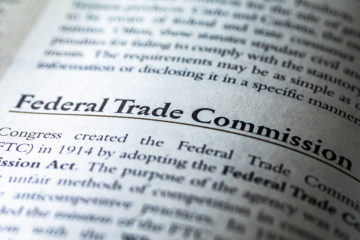In today’s world, information is more accessible than ever — but trust in that information is collapsing.
In this excerpt, we explore how biased reporting, information overload, and the rise of AI have created new challenges for truth and trust. From the media’s often chaotic relationship with President Trump to the hidden biases baked into AI models, the piece introduces two key ideas: Gell-Mann Amnesia and the newly coined Smith-Sauer AI Amnesia Effect. Both reveal how easy it is to spot mistakes in areas we know well — and how dangerously easy it is to miss them when we don’t. Market Institute President Charles Sauer explores this new phenomena in an article at RealClearMarkets.
Restoring faith in information won’t be easy, but it starts by recognizing these traps.
“President Trump’s Administration and media coverage of it has exposed a problem with modern society – information overload. We are constantly glutted from both sides with biased information, misinformation, superficialities, decontextualized half-truths, and on and on.
The media is largely lost in their coverage of the Trump Administration, as they have never dealt with a public figure like Trump so comfortable openly challenging them. It makes the media more feisty, therefore more prone to errors, and when they are wrong Trump gets more power and the media gets feistier, creating some sort of Trump doom spiral that empower the President to do more and more both good and bad.
Although we live in a golden age of access to information, no one can provide us with solid, neutral information – or even wants to.
We know that Fox News is right leaning, CNN is left leaning, MSNBC is hanging off of the left wing, and Newsmax is counterbalancing them on the right. But, article to article and clip to clip this bias is hard to follow, sift, and distill – even for those of us who do this for our jobs!
In fact, Michael Crichton coined a term to discuss the problem “Gell-Mann Amnesia.” The idea of Gell-Mann Amnesia is that if you read an article on an issue that you have expertise in then the errors in the reporting are obvious and sometimes laughable. However, the same reader could read an article in the same paper on an issue that they aren’t the expert in and accept the information at face value instead of realizing that it is probably just as wrong as the previous article that they knew was wrong.
This problem is soon going to get worse. We don’t often see AI models as being biased, but they are – in fact they are very biased and more than we recognize just wrong. (The proper term is hallucinating.) Take for instance China’s AI. It is being trained on information that contains no negative stories about China. Most of the time that might not matter, but when it matters, then it is a big deal.
However, if the AI user is an expert on China, then the bias is obvious.
Additionally, I have used the various AIs to perform economic research and the numbers that were produced were wrong – very wrong. But I have also used AI to help me code, build computer boards, and other things that I am not an expert in. Each project has been a lesson in failures, but I sank hours into them because I didn’t know. This effect is like Gell-Mann Amnesia, but isn’t about journalists this is about technology, so we have a new name and definition:
The Smith-Sauer AI Amnesia Effect: A cognitive bias where individuals observe obvious flaws or inaccuracies in AI-generated output within their domain of expertise, yet continue to place undue trust in AI output on topics outside their expertise, forgetting the unreliability they just witnessed.
These amnesias are important to recognize, but they are just as important to address. If we are constantly glutted on misinformation, we start to distrust everything.”



0 Comments